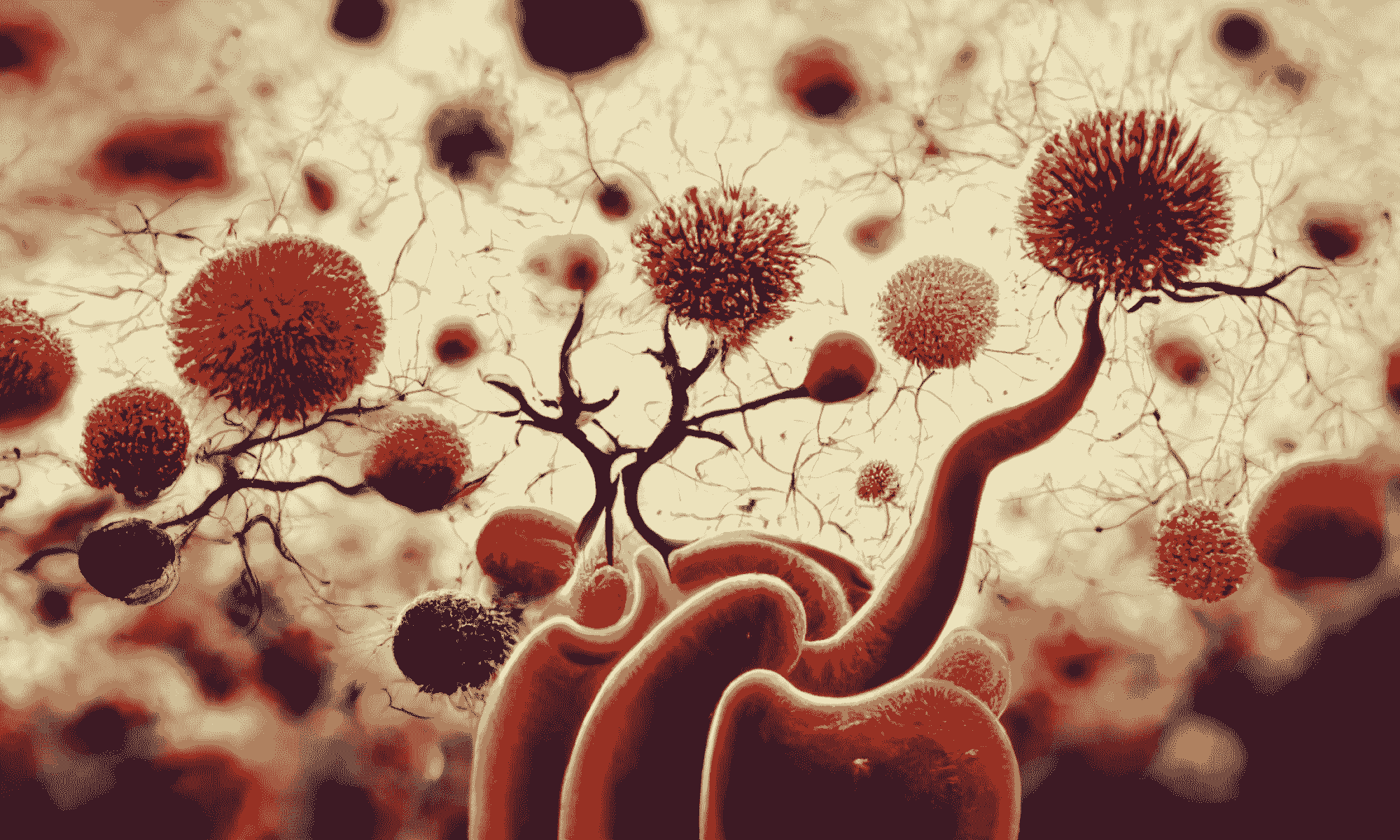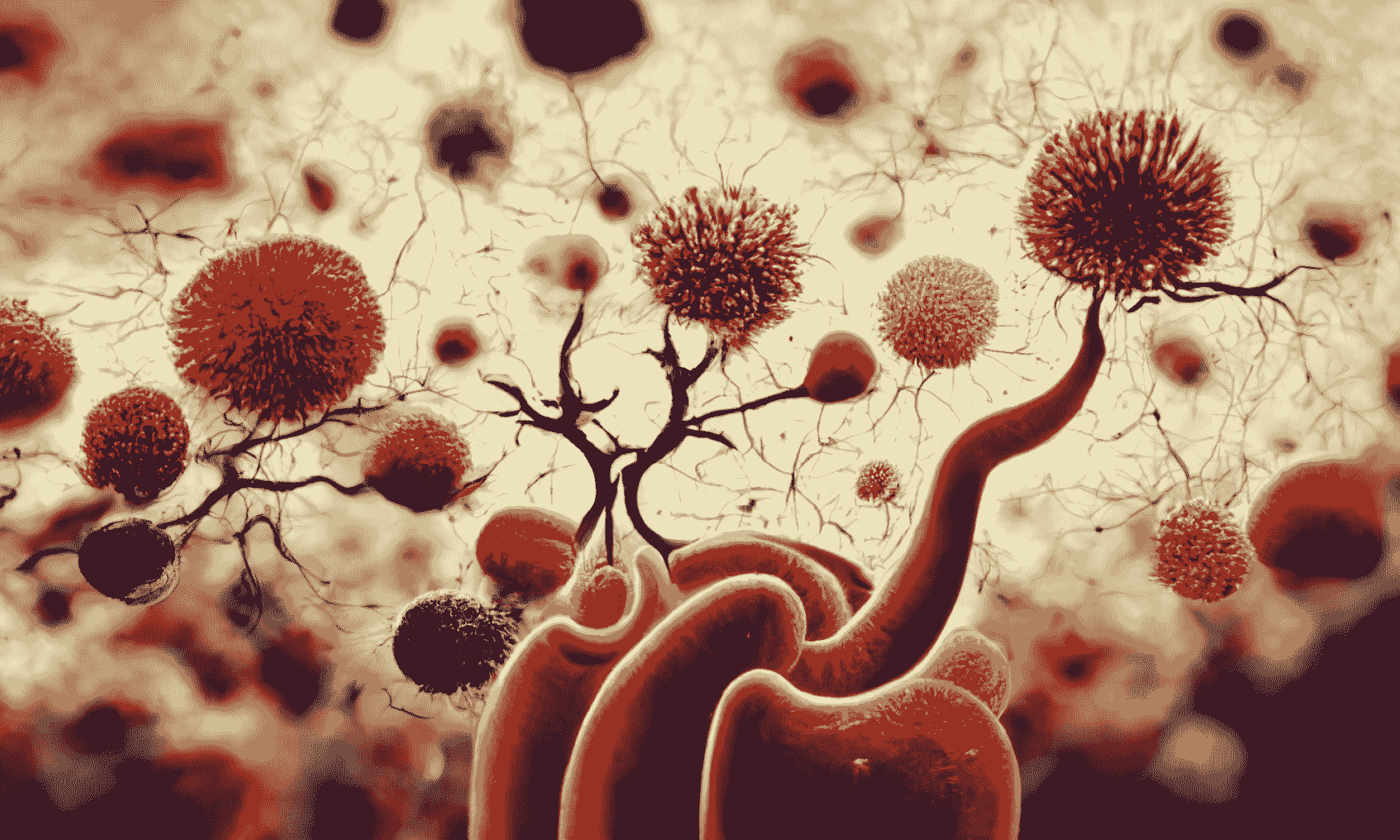
The systems of our body weave a complex web, much of which remains a mystery. The brain's ties to each of the systems make mental health conditions particularly difficult to understand and holistically treat. The need to unlock the brain's mysteries is urgent, as mental health issues now affect over 10 percent of the global population—that's over 800 million people. Luckily, emerging research shows potential for novel mental health treatments. Some of the most exciting research explores the brain's interactions with our other organs, especially our gastrointestinal tract.
Western medicine’s approach to mental health has always regarded the brain as the sole target for treatment. However, new research suggests that this approach overlooks other influential factors. With expanding knowledge of the connections between the body’s organs and the impact of other organs on the brain's chemistry, treatment methods for mental health disorders are advancing rapidly.
A major breakthrough in the past two decades has been the discovery of the impact of the gastrointestinal (GI) system on brain chemistry. One of the earliest findings was a study proving that the gut produces 90 percent of the body's serotonin, a chemical that helps to shape our moods. Since this discovery, extensive research has confirmed the direct impact of the gut’s health on brain chemistry and mental health.
It is an exciting time for researchers looking for new pathways for treatment. The discovery of the gut-brain connection not only points to novel treatments, it also points to an open, holistic way of thinking about mental health.
Making sense of the complex relationship between the gut and brain requires us to understand a few mechanisms occurring in the body: the gut and the microbes that maintain it, the brain's influence on the state of the mind, and the surprising communications between our bodies' systems.
Tiny microbes make a big system
Each person hosts around 38 trillion microbes in, around, and on their bodies. Microbes are tiny organisms—including fungi, bacteria, and viruses—that cover most of the internal and external surfaces of the body. These work with each other, as well as with human cells, to run the systems of their host effectively. They consume various chemicals produced by the host body, and they in turn produce waste products which impact their environments. These changes, which happen in areas like the mouth and gut, affect the health of the human host.
These tiny microbes work as a collective and are referred to as one’s microbiome. The term microbiome is used with reference to different parts of the body, as the microbes in these areas vary in type and purpose. For example, the GI tract hosts the 'gut microbiome' and the mouth hosts the 'oral microbiome.'
In the human body, there are around the same number of microbes as there are human cells. The collaboration between our cells and microbes can be thought of as a superorganism. This mutually beneficial relationship creates the complex web of systems that helps our body function.
Although scientists have known about microbes for centuries, their role within our bodies is relatively novel information. Antonie van Leeuwenhoek, known as the father of microbiology, was among the first to utilise a microscope. He discovered these microbes in the late 1600s. His work laid the foundation for modern-day researchers to understand the ways in which microbes heavily impact human health.
It has taken over three centuries for technology to catch up with our curiosity about the role of the microbe. Only within the last couple of years have we become capable of reading an entire microbiome sample. This is called sequencing, and it provides data on the microbe that is present, and its quantity. Sequencing lets us dissect how different variables impact the microbiome over time. Sequencing technology is becoming increasingly cheaper, allowing for this type of data collection to flourish. Advances in this technology are enabling rapid, exciting advances in microbiology and human health.
Highlighting the gut's microbiome
With new technology comes new information. Sequencing breaks down the seething, complex microbiome into usable data. With information on types and quantities of microbes in a sample, it is easier to understand what influences the specific microbes in particular areas of the body.
As the gut is one of the most densely populated areas of the human body for microbes, it has been the focus for much of the research. Current work asks why each individual’s gut microbiome differs and what the impact on their health is.
The known influences on microbiome composition are environment and host genetics, although the extent of each influence is still not well understood. A 2021 study suggests that genetics are more broadly important, although their influence may be less straightforward than scientists had assumed. Originally, it was thought that we inherit 5 to 13 percent of our microbiome, but the data shows that 97 percent of our microbe diversity is affected by our parents' genes. However, environmental factors, such as geographic location, diet, medication, age, and more, are still believed to have the deepest impact.
As more data is collected, further analysis will clarify our understanding of the formation and maintenance of the microbiome. That will let us more confidently connect our gut to the broader systems of our bodies and target the gut to treat a wider range of conditions.
Connecting the gut to the mind
We know that the gut has an immense impact on the body’s immune, metabolic, and neurobehavioral systems, as it is capable of sending signals across the whole body. Of all organs it communicates with, the brain stands out as one of the most influential relationships. New data is measuring that relationship, and requiring us to re-evaluate what stimulates the mind to feel certain ways.
The gut communicates with the brain along three major routes: along the vagus nerve, using the nervous system; via metabolites that travel in blood through the circulatory system; and via immune-signaling molecules in the immune system. Each of these pathways is capable of independently passing signals between the two organs. Such complexity requires us to imagine our bodily systems as a web, with messages travelling along many fine paths.
With this strong connection between the two organs, it seems obvious that a healthy gut would contribute to a healthy brain. But what determines a healthy gut? The health of a gut depends on its microbes finding a state of homeostasis, which occurs when the flora is in equilibrium with the environment. This makeup can look different for different people, and there is no single perfect mix of microbes.
A disruption in the healthy balance is called dysbiosis. Dysbiosis triggers responses across the body, and it may present an array of health issues such as brain fog, constipation, skin conditions, allergies, and mental health disorders. The body works as a holistic system, and when a part as significant as the gut is not functioning properly, the rest of the body feels the effects.
Communication flows both ways between the gut and the wider body; a concept called bilateral communication. The gut both sends and receives messages from other parts of the body. Negative messages, indicating problems elsewhere in the body, can send the gut into dysbiosis. This creates a feedback loop which can cause compounding problems between various organs.
One study shows that stress in mice negatively impacted the biodiversity of their gut. Increasing the stress of the mice created dysbiosis, while decreased stress levels led to recovery. As stress starts in the brain, this demonstrates how the brain can communicate to the gut. A similar study conducted on mice with mood disorders treated their guts. This treatment involved implanting healthy mixes of microbes into the guts of the mice. The results showed signs of recovery in the mood disorders of the mice, clearly demonstrating this two-way communication between the organs.
These studies clearly show the potential role of the microbiome in the context of mental health disorders. Human studies are in their early stages, but promising links are appearing between gut health and disorders such as autism, schizophrenia, multiple sclerosis, bipolar disorder, neuro-degenerative disorders, anxiety, and depression.
As new research alters our understanding of the mind-body connection, approaches to mental health will follow. These new ways of thinking are shifting both medications and methods of treatment.
Implications for mental health treatments
The last decade saw a 13 percent increase in mental health disorders around the world, according to The World Health Organization. This growing storm of mental health issues will increasingly affect the happiness of communities worldwide, with immense consequences for society. Because the causes are so varied, mental wellbeing is a complicated topic to tackle. Below, we look at some of the emerging strategies to harness our gut microbiome in helpful ways.
Prevention of poor gut health
Prevention is always better than treatment. If we know that a healthy gut contributes to a healthy brain, then we know that it will be vital to support communities and individuals to achieve good gut health.
Environmental changes are the most obvious place to start, as they have the largest impact and are possible to alter. Environmental changes require the cooperation and effort of individuals and communities. When education and resources are made available to the community, individuals can make the necessary choices for themselves. It does require a conscious shift in focus and (often) funding, but the benefits are worth the effort.
Some of the areas to pay attention to include:
- Diet: Food goes directly to our gut and has one of the largest impacts on its health. It is vital to educate and support healthy eating choices for individuals. For a community, this also means ensuring affordable nutritional choices for all. Specific foods promote gut health such as high-fibre fruits and vegetables. Making healthy food affordable should become a social and political priority, as it benefits everyone. Communities that invest in health see positive correlations with social, economic and environmental sustainability, according to public health studies done by The World Health Organization.
- Medication side effects: Medications can cause major disruption to gut health. Antibiotics, while great at clearing out bad bacteria and fungi, also kill off healthy microbes and often lead to dysbiosis. Beyond antibiotics, around 24 percent of drugs on the market now will affect at least one strain of bacteria found in guts. For preventative gut health, practitioners should discuss medication choices and their implications with their patients.
- Stress: Although it is one of the hardest things for individuals to reduce, stress is well-proven to cause gut problems. Communities should provide stress-reducing resources that individuals can take advantage of, and individuals should monitor and reduce stress where possible.
Curing poor gut health
In an ideal world, these commonsense preventive measures would lead to a society where everyone has great gut health. Unfortunately, this is not an easy thing to accomplish, and therefore we have to look beyond the preventative ideals. Research is also expanding our range of psychiatric treatments. Microbiome-based therapies are in the early stages but have immense potential for their impact on mental health disorders.
Probiotics, prebiotics and psychobiotics
Probiotics are a class of a dietary supplements consisting of live microbes. Probiotics have been growing in popularity for the last decade. They assist in providing the gut with beneficial bacteria. Many people eat probiotic-rich foods, such as kombucha or yoghurt, for their health benefits.
There are, however, mixed opinions on their impact as a treatment for poor gut health. They might be better classified as preventative. Often, a gut in dysbiosis is a poor environment for healthy microbes. Taking probioitcs with dysbiosis may be a bit like putting a tropical animal in Antartica and expecting it to survive. Probiotics tend to be more beneficial with a gut that can provide the right environment for them to thrive.
Prebiotics are also common supplements. Think of them as food for the microbes. They bypass human digestion or uptake, and will travel to the GI tract for the microbes to consume. Prebiotics can be sourced from plants such as garlic, onion, artichoke, wheat, or soy. Taking prebioitics and probiotics together can give the probiotics a better chance of survival, and mixtures of these are typically known as synbiotics.
Psychobiotics are a more novel idea. They are a class of probiotics that specifically focus on brain function and mood. These microbes target the gut specifically, as other mixtures can target other microbiomes on the body. There is still much to be unpacked in their use, but limited research suggests that some methods are significantly more useful than others.
A study on the treatment of depression shows us microbes' potential as a treatment. Lower amounts of specific strains of bacteria were seen in individuals suffering from depression, when compared to healthy microbiomes. When those people were treated with a psychobiotic mixture of microbes, levels of depression decreased.
It looks increasingly as though some mixture of probiotics, prebiotics, and psychobiotics can have a lasting, positive impact on the gut. Research will continue to translate this impression into treatments.
Microbes straight from the source: poop pills
The gut microbiome recently had a moment of stardom as 'frozen poop pills' appeared across the headlines. It's easier to source complex mixtures of microbes from an existing source—pre-mixed, so to speak—than to design the mix from scratch. That's the benefit of poop pills, or faecal microbiota transplants (FMT).
These probiotics, sourced from human feces, are some of the first studies to be done with human subjects. When fecal samples of healthy, neurotypical individuals were transplanted into the guts of study subjects with bipolar disorder, symptoms of mania and depression decreased. The results have sparked similar studies for depression, schizophrenia, and anxiety. Overall, fecal transplants are proving to be more impactful than general probiotics mixtures.
Australia recently gave the first approval in the world for this treatment to be implemented. What a milestone: new treatments are beginning to pass the clinical stage.
Herbal remedies
For centuries, many Eastern methods targeted the gut for brain health, but Western medicine lacked the science or, sometimes, the open-mindedness to incorporate this experience into treatment. Evidence-based research now supports many of these global experiences for combating gut stress, which will hopefully mend the gaps and stimulate more exchange between Eastern and Western approaches.
Herbal remedies are proving their ability to combat the impact of stress on the gut. By treating chickens with certain traditional herbs for a healthy gut microbiome, their ability to withstand stress from heat was increased. This raises the question of whether humans could use similar herbal remedies to reduce stress.
Other Traditional Chinese medicines have now been verified to regulate gut bacteria, switch certain genes on or off in microbes, and support the integrity of internal barriers in the gut. All of these are key to maintaining a healthy gut.
Limitations, and the future of research
While the emerging ideas are exciting, development of microbiome-based products and services await further human trials. Much of the existing research comes from mice trials, and has yet to be translated into a clinical setting. The next decade will ideally provide further clinical research and human trials to direct potential therapies.
There is also a severe lack of longitudinal research in this field to understand how individuals change over time. The previously mentioned 2021 study on heritability is a perfect example of the limitations seen in existing work. Previous studies on heritability drew single data points from individuals' microbiomes at one moment in time, while a more recent project drew numerous samples over the course of one year. The findings were astonishingly different. As research continues, longitudinal study will be highly important to add another layer of understanding.
Early findings are already profoundly affecting our understanding: mental health is a complex system, requiring holistic treatment. Even before more microbiome-based therapies are brought to market, education and resources for mental health-promoting lifestyle changes are available and relevant.







